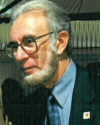Brief versions are available on the Internet in Spanish and in French. The full versions are also available in English, in Spanish and in French.
Declaration for the Transition to a Culture of Peace in the XXI Century
TRANSCEND MEMBERS, 3 May 2021
1 May 2021 – We will be circulating the Declaration as widely as possible for signatures and dissemination, and a website is in preparation for this. Below is the short English version.
We recognize that changes emanating from individuals can guide us in the search for that which links us with other humans and with all of life. But, we also recognize that individual change is not enough and that the transition to a Culture of Peace requires profound changes and reforms of institutions and policies to make possible a collective transformation.
In view of the above we propose locally. . .
A global Culture of Peace that can be cultivated locally with various expressions . . . promoted and favored by the authorities of our cities, enabling citizens around the world to organize peace education and to propose public policies that:
Guarantee budgetary investment to improve and enrich the physical and social environments of cities, so that our brains are nourished from an early age with experiences of well-being and awareness of the conditions that need to be transformed in our communities.
Promote and support peace education programs in public institutions and in non-formal settings through community initiatives that go beyond schools and universities that operate as a business.
Share broad and transdisciplinary scientific knowledge with communities and neighborhoods: so that people can question and think about the relevance of our beliefs and values; so that we become aware of our position in the world and our relationship with other species; so that we understand that biology and previous history does not determine our destiny; and so that we can learn conflict resolution based on non-violence.
Share with communities and neighborhoods the history of world cultures and their actions in favor of peace: recognizing our unity with other peoples; knowing their symbols; and creating new shared symbols that promote the acceptance of others, solidarity, respect and cooperation.
Promote transparency and the free flow of information: avoiding the secrecy of the State; promoting, supporting and giving freedom to the imagination and the creation of new vocabularies, languages and narratives about peace; and transforming the negative and violent portrayal of conflict in the mass media.
Publicize the knowledge and actions of organized civil society: enabling participatory democracy; training citizens, teachers, journalists, activists, social and religious leaders, policemen, students, professionals, politicians and scientists to participate in the exercise of their human rights, monitoring guarantees of all human rights including housing, health, sanitation, education and public safety; and thus evaluating the progress of the culture of peace in their communities.
Establish spaces for reflection, listening and dialogue between people of different ages, different physical, affective, cognitive and socioeconomic needs, and different ethnic, linguistic and gender identities.
Promote democratic participation through equitable representation mechanisms for ethnic and gender diversities, free from the influence of military industry, financial monopoly corporations, and institutions that influence national politics.
Prioritize local and sustainable agriculture, manufacturing and consumption that depend less on oil and corporate monopolies, that respect the diversity of regional species to help combat climate change and environmental problems, and that promote the creation of cooperatives that work for a social and solidarity economy focused on fair trade and the well-being of the families and groups that comprise them.
… and we propose globally
The creation of a “Mayors Security Council” made up of representatives of the principal cities from all regions of the world. This Council can increase awareness that another world is possible. It can be created immediately since its formation does not require agreements or approval from the United Nations Member States. It can meet virtually through modern forms of communication and display in the press and mass media its own agreements on global security issues on the agenda of the actual Security Council, including issues that the current Security Council has failed to address, for example, the abolition of nuclear weapons.
The creation of a Council for Socioeconomic Affairs and a Council for Environmental Affairs in the United Nations, whose decisions represent the global balance of powers and favor the adoption of agreements on these matters by the Member States.
The prompt re-founding of the United Nations System, with a General Assembly composed of 50% representatives of the Member States and another 50% of institutions, academies and civil society organizations from around the world that represent “We, the peoples…”; this will allow the redirection of present policies by means of democratic multilateralism.
“The peoples” already have their own voice.
We hold that history is in our hands and that another world is possible.
A global culture of peace is possible. Let’s not mourn, but organize!
Signatories:
- David Adams – Director of the UNESCO task force for the International Year for the Culture of Peace
- Federico Mayor Zaragoza – President of Fundación Cultura de Paz
- Roberto Emmanuele Mercadillo Caballero – Researcher at the National Council of Science and Technology, Mexico; Secretary of Transitional Justice and Peace, CSO
____________________________________________
 Dr. David Adams is a member of the TRANSCEND Network for Peace Development Environment and coordinator of the Culture of Peace News Network. He retired in 2001 from UNESCO where he was the Director of the Unit for the UN International Year for the Culture of Peace. Previously, at Yale and Wesleyan Universities, he was a specialist on the brain mechanisms of aggressive behavior, the history of the culture of war, and the psychology of peace activists, and he helped to develop and publicize the Seville Statement on Violence. Send him an email.
Dr. David Adams is a member of the TRANSCEND Network for Peace Development Environment and coordinator of the Culture of Peace News Network. He retired in 2001 from UNESCO where he was the Director of the Unit for the UN International Year for the Culture of Peace. Previously, at Yale and Wesleyan Universities, he was a specialist on the brain mechanisms of aggressive behavior, the history of the culture of war, and the psychology of peace activists, and he helped to develop and publicize the Seville Statement on Violence. Send him an email.
 Federico Mayor Zaragoza was born in Barcelona in 1934. Doctor in Pharmacy from the Complutense University of Madrid (1958), he has been a professor at different Spanish universities and has held numerous political positions, including Minister of Education and Science (1981-82). From 1987 to 1999 he was Director-General of Unesco. He is currently president of the Foundation for a Culture of Peace.
Federico Mayor Zaragoza was born in Barcelona in 1934. Doctor in Pharmacy from the Complutense University of Madrid (1958), he has been a professor at different Spanish universities and has held numerous political positions, including Minister of Education and Science (1981-82). From 1987 to 1999 he was Director-General of Unesco. He is currently president of the Foundation for a Culture of Peace.
Tags: Culture of Peace, Peace Culture
DISCLAIMER: The statements, views and opinions expressed in pieces republished here are solely those of the authors and do not necessarily represent those of TMS. In accordance with title 17 U.S.C. section 107, this material is distributed without profit to those who have expressed a prior interest in receiving the included information for research and educational purposes. TMS has no affiliation whatsoever with the originator of this article nor is TMS endorsed or sponsored by the originator. “GO TO ORIGINAL” links are provided as a convenience to our readers and allow for verification of authenticity. However, as originating pages are often updated by their originating host sites, the versions posted may not match the versions our readers view when clicking the “GO TO ORIGINAL” links. This site contains copyrighted material the use of which has not always been specifically authorized by the copyright owner. We are making such material available in our efforts to advance understanding of environmental, political, human rights, economic, democracy, scientific, and social justice issues, etc. We believe this constitutes a ‘fair use’ of any such copyrighted material as provided for in section 107 of the US Copyright Law. In accordance with Title 17 U.S.C. Section 107, the material on this site is distributed without profit to those who have expressed a prior interest in receiving the included information for research and educational purposes. For more information go to: http://www.law.cornell.edu/uscode/17/107.shtml. If you wish to use copyrighted material from this site for purposes of your own that go beyond ‘fair use’, you must obtain permission from the copyright owner.
